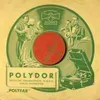Public domain Live Radio Stations
Radio Stations
Choose a Genre
Public Domain Radio Stations: Preserving and Celebrating Cultural Heritage
Public domain radio stations specialize in broadcasting music, spoken word recordings, and other creative works that have entered the public domain. This means that these works are no longer protected by copyright law, making them free for anyone to use, share, and distribute. The content featured on these stations is vast and varied, often including classical music, folk, jazz, early recordings from various genres, as well as speeches, lectures, and literary works. By offering these works, public domain radio stations play a crucial role in preserving and promoting cultural heritage.
One of the core missions of public domain radio stations is to keep these works accessible to the public, ensuring they are not lost to time. Many of the pieces played have historical or cultural significance, having shaped various artistic movements or providing insight into past generations. These works, whether classical compositions, early jazz recordings, or vintage spoken word, serve as windows into our shared cultural history and allow us to appreciate the artistic achievements of those who came before us.
A defining feature of public domain radio stations is their focus on cultural preservation. By making these works freely available, the stations ensure that future generations can enjoy and study them. The broadcasts offer a diverse range of content, from timeless pieces of classical music to the sounds of jazz pioneers, all available to listeners without the restrictions of modern copyright law. As these works are in the public domain, they serve as a reminder of the evolution of music, literature, and art over time.
Public domain radio stations also often have a community-oriented focus. Many feature local artists, promoting cultural events, and offering programming that dives deep into the history and context of the works being played. By offering educational content, these stations foster a deeper understanding of the cultural significance of these recordings. This educational approach helps listeners not only enjoy the music but also appreciate its historical and cultural importance.
Listeners of public domain radio stations value the richness and diversity of the content. The mix of music and spoken word recordings offers a sense of connection to past generations and an appreciation for how these works continue to resonate. The fact that these broadcasts are free and open to everyone adds to their appeal, as they remove the barriers often imposed by copyright laws, allowing for unrestricted access to important cultural works.
In conclusion, public domain radio stations play an invaluable role in preserving and sharing the cultural heritage of the past. By offering a wide range of content—from classical compositions to spoken word recordings—they ensure that significant works are available to the public, free of charge. Through their commitment to promoting cultural heritage and educating listeners, these stations keep history alive and accessible, providing an enriching experience for all who tune in.
Public domain radio stations specialize in broadcasting music, spoken word recordings, and other creative works that have entered the public domain. This means that these works are no longer protected by copyright law, making them free for anyone to use, share, and distribute. The content featured on these stations is vast and varied, often including classical music, folk, jazz, early recordings from various genres, as well as speeches, lectures, and literary works. By offering these works, public domain radio stations play a crucial role in preserving and promoting cultural heritage.
One of the core missions of public domain radio stations is to keep these works accessible to the public, ensuring they are not lost to time. Many of the pieces played have historical or cultural significance, having shaped various artistic movements or providing insight into past generations. These works, whether classical compositions, early jazz recordings, or vintage spoken word, serve as windows into our shared cultural history and allow us to appreciate the artistic achievements of those who came before us.
A defining feature of public domain radio stations is their focus on cultural preservation. By making these works freely available, the stations ensure that future generations can enjoy and study them. The broadcasts offer a diverse range of content, from timeless pieces of classical music to the sounds of jazz pioneers, all available to listeners without the restrictions of modern copyright law. As these works are in the public domain, they serve as a reminder of the evolution of music, literature, and art over time.
Public domain radio stations also often have a community-oriented focus. Many feature local artists, promoting cultural events, and offering programming that dives deep into the history and context of the works being played. By offering educational content, these stations foster a deeper understanding of the cultural significance of these recordings. This educational approach helps listeners not only enjoy the music but also appreciate its historical and cultural importance.
Listeners of public domain radio stations value the richness and diversity of the content. The mix of music and spoken word recordings offers a sense of connection to past generations and an appreciation for how these works continue to resonate. The fact that these broadcasts are free and open to everyone adds to their appeal, as they remove the barriers often imposed by copyright laws, allowing for unrestricted access to important cultural works.
In conclusion, public domain radio stations play an invaluable role in preserving and sharing the cultural heritage of the past. By offering a wide range of content—from classical compositions to spoken word recordings—they ensure that significant works are available to the public, free of charge. Through their commitment to promoting cultural heritage and educating listeners, these stations keep history alive and accessible, providing an enriching experience for all who tune in.

